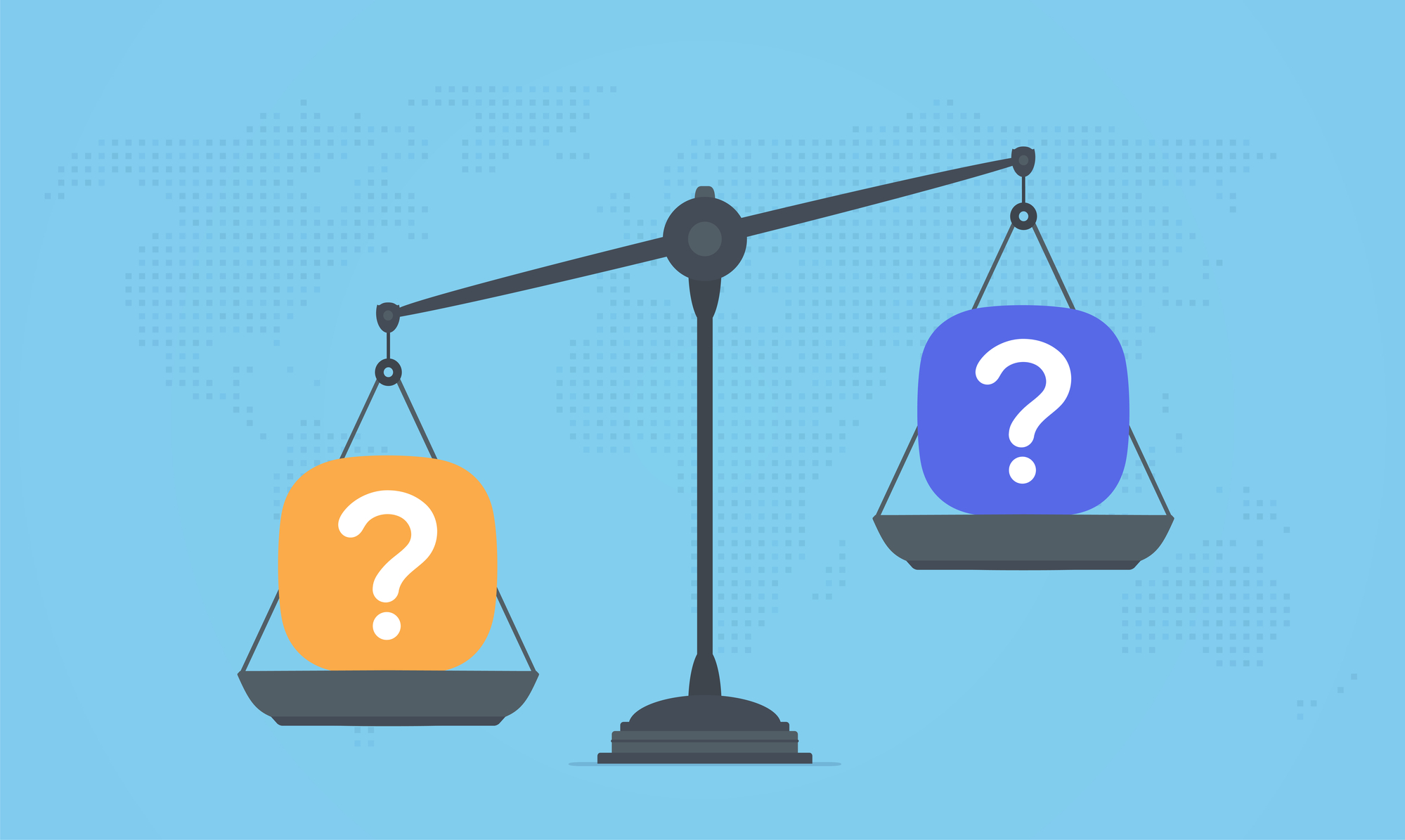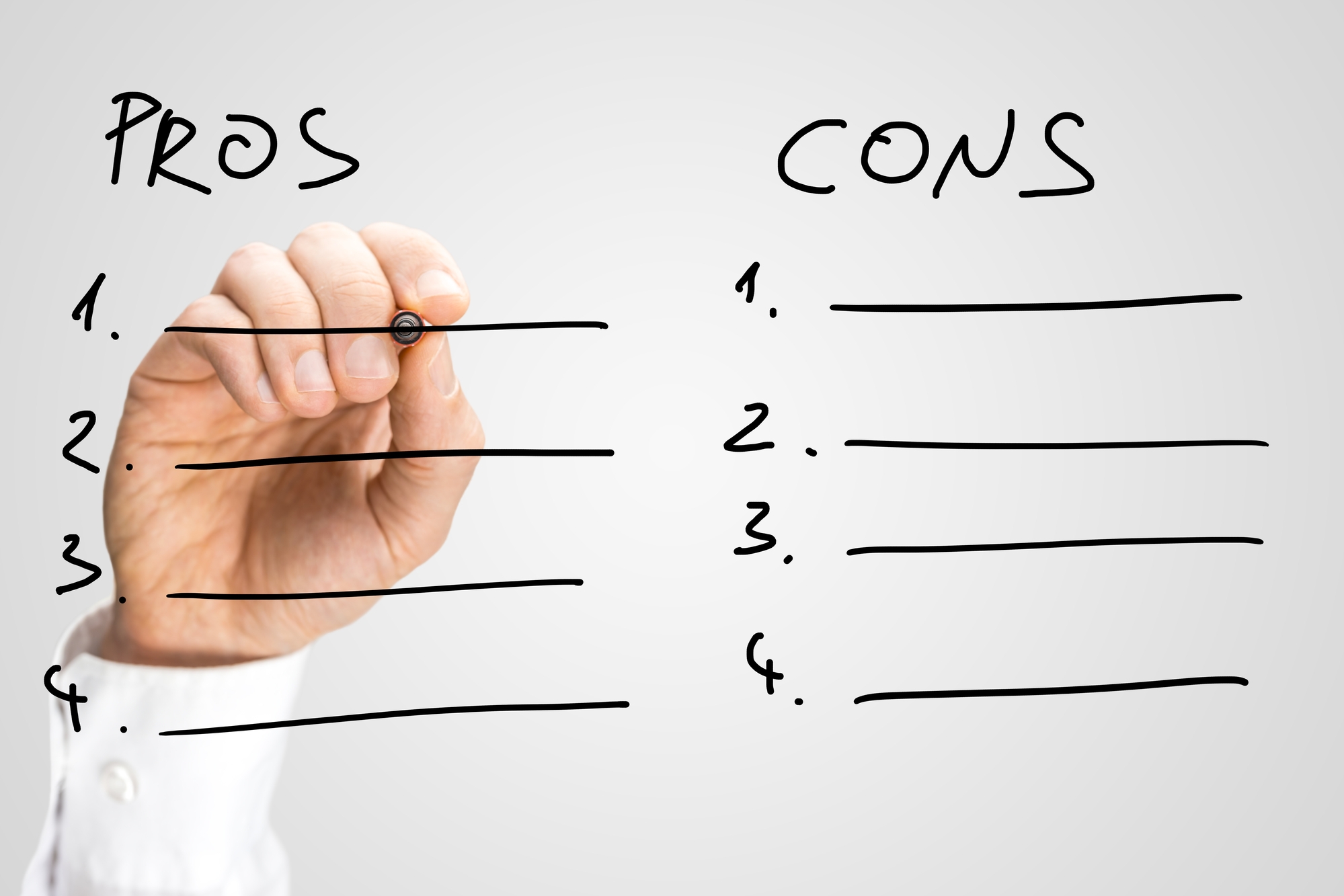Comparing Inpatient vs Outpatient Rehab: Pros and Cons of Treatment Options
When trying to decide between inpatient and outpatient care for addiction recovery, it’s essential to weigh the pros and cons of each treatment option. This article will provide an overview of the distinctions between these two paths while exploring how one can determine what is most suitable given their individual needs and situation. It is important to consider all aspects of both inpatient vs outpatient rehabilitation so that a decision leading toward successful long-term results may be made with confidence.
Key Takeaways
- Inpatient and outpatient treatment both offer comprehensive treatment approaches to address addiction, but differ in terms of structure, intensity, duration and level of support.
- Inpatient rehab offers more intensive care with higher success rates while outpatient provides flexibility and shorter treatment periods.
- When selecting a rehabilitation option it is important to consider personal needs, the level of addiction and available resources for successful recovery.
Understanding Inpatient and Outpatient Treatment

Addiction treatment can be comprehended more easily by being aware of the distinction between inpatient and outpatient treatment. Both services aim to assist individuals with addiction issues recover and maintain sobriety, although their structures, intensities, and support levels contrast from each other.
Inpatient rehab requires residing at a therapy center while providing round-the-clock assistance plus an organized atmosphere for recovery as opposed to accessing care through outpatient program which allows people who are struggling with addictive behavior to remain within their home environment whilst attending individual sessions or group therapy techniques plus managing prescription medications simultaneously maintaining daily activities like work obligations etc. Despite both options providing comparable services such as one-on-one counseling appointments , gathering therapies alongside drug related treatments. Hence deciding either relying on inpatient or opting for separate approach requires analyzing what fits better when striving towards fruitful rehabilitation journey .
Inpatient Rehab Overview
Inpatient rehab provides a complete and intensive treatment atmosphere for people battling moderate to serious addiction. Through living in an inpatient rehabilitation center, those enduring substance abuse are given 24-hour care and assistance, making sure that they go through the recovery process under a secure and managed environment. The beginning step of this sort of therapy typically involves medically monitored detoxification services before proceeding on with activities meant to give individuals knowledge about dependency as well as preparing them with skills necessary for long lasting sobriety such counseling, education or therapies tailored according to one’s needs.
There is no lack when it comes down Inpatient centers that offer distinct forms of programs from medical hospitals similar settings up till luxurious environments resembling spa resorts or hotels providing specific treatments suitable enough pertaining specifically towards each patient’s need even if durations range between 30 days up until 6 months depending on their progress throughout the whole treatment program concerning addiction related issues only facilitating Help at all stages within anyone’s life attempting into recovering from substance misuse eventually leading back onto longer term soberness hopefully achieving just so Desired results intended overall once done previously started journey by entering any type whatsoever existent still existing rehabilitations facility full inside yet established out there actually nowadays certainly wider available community globally everywhere already around us today!
Outpatient Treatment Overview
Outpatient treatment is an option for those struggling with addiction who require less severe attention or are continuing after an inpatient program. This form of rehab focuses on building the skills necessary to maintain long-term sobriety and stability, as well as preventing relapse. Outpatient therapy sessions may involve family counseling, individual guidance or group discussions that span a period ranging from 3 months up to 6 months depending on the particular situation.
The more flexible approach offered by outpatient rehabilitation allows individuals battling addiction issues to continue their normal routine without losing sight of recovery goals set forth through comprehensive therapies such as psychotherapy and education about substance abuse awareness.
Comparing Inpatient and Outpatient Treatment Features

When examining the differences between inpatient and outpatient rehab, it’s important to consider several key factors. Outpatient treatment is more flexible with shorter periods of care compared to intensive inpatient programs that require a longer commitment for comprehensive support and supervision. While both provide various types of treatment approaches, those found within an in-facility setting tend to be much stronger than their outpatient counterparts due mainly they come with round-the-clock monitoring by medical staff. Whereas residential addiction treatment patients rely heavily on themselves or third parties such as family members or friends for assistance when needed during recovery time frames.
Discernment plays an integral role when selecting either option as realizing these distinctions can significantly contribute towards successful outcomes while striving for sustained abstinence following primary rehabilitation from drug/alcohol abuse issues down the road upon completing any programmatic journey involved along one’s life path.
Treatment Approach
Inpatient and outpatient programs provide treatment facility options that incorporate inpatient, as well as out-of-home care approaches to addiction. Inpatient services tend to focus on individual and family therapy in order to address the underlying causes of dependence. They also include education about dependency along with participation in 12 Step programs for recovery. Outpatient programs are more flexible when it comes to providing support since those enrolled still have time available for day activities while attending their sessions at the same time. Psychoeducation, group counseling, relapse prevention all form part of this program’s framework. No matter if patients opts for an attentive or relaxed approach both types work together towards healing addicted individuals through giving them tools needed throughout recovery journeys.
Intensity and Duration
Inpatient rehab is a much more concentrated approach to recovery than outpatient programs due to the full-time support and structured setting. Rehabilitation can be between 30 days and six months, depending on individual requirements and progress. In this immersive atmosphere patients are free from distractions such as daily life triggers that may impede upon recovery goals.
Conversely, with outpatient programs, individuals retain some of their everyday routines whilst still receiving therapeutic intervention at predetermined times during the week – usually for 3, 6 months although in severe cases it has been known to extend longer than 12 months period.
Support and Supervision
Inpatient rehab provides a constant, safe and structured environment which is crucial to recovering from addiction. This level of care includes 24/7 access to treatment services such as referral programs, directories for local resources and social support systems provided by medical professionals like doctors and therapists. On the other hand, outpatient rehabilitation relies more heavily on personal networks such as friends or family in order to stay committed towards their recovery plan. This might not be suitable for everyone with severe cases of substance abuse since it offers limited supervision compared to its inpatient counterpart.
Pros and Cons of Inpatient Rehab

Inpatient rehabilitation can be beneficial for certain individuals while not the best fit for others. Below, we will explore both its advantages and drawbacks in more detail.
Staying at an inpatient facility is one way to receive care – instead of receiving treatment on an outpatient basis – that may offer various benefits but also come with some challenges or concerns. We will examine these pros and cons associated with this form of rehab here.
Advantages
Inpatient rehab offers an ideal setting for addiction recovery, as it provides 24/7 support from medical professionals and a highly structured environment. This ensures the highest success rate in treatment while also granting access to tailored plans which can meet individual requirements more effectively. One of the main benefits is that patients are removed from distractions or triggers that could cause disruption during their recovery process – increasing chances at long-term sobriety goals even further. Inpatient rehabilitation also creates a nurturing atmosphere where various therapies and treatments can be explored with maximum efficiency. Thus leading towards healing on all levels of physical, mental and emotional well-being.
Disadvantages
When it comes to treatment options, inpatient rehab can be quite advantageous. There are a few drawbacks. One such disadvantage is the cost associated with room and board for an inpatient stay which may not be feasible for all individuals considering this option.
Transitioning back into everyday life post-treatment might pose as a challenge since it calls upon patients leaving their responsibilities behind during their stint of rehabilitation at an inpatient facility, potentially hindering progress towards recovery even If integration fails to take place on time due to isolation from friends or family members involved before seeking out care through said modality.
Pros and Cons of Outpatient Rehab

Outpatient rehab offers a mix of advantages and disadvantages, making it an option that works well for some people but not all. This article will look into the benefits and drawbacks associated with outpatient programs in more detail.
The pros include flexibility as individuals can fit their program around existing work or school commitments while still receiving care from professionals on-site at the clinic during regular visits. This type of therapy often has lower costs compared to inpatient treatment, making it a more accessible option for many individuals seeking addiction recovery. Additionally, outpatient rehab allows individuals to maintain their daily routines and support systems, which can be beneficial for long-term success in sobriety.
Advantages
Outpatient rehab treatment offers flexibility, affordability, and the chance to keep up with regular activities and support networks. This choice of care is more affordable than inpatient rehabilitative services which allows for a larger group of individuals access to this type of assistance. It also permits those fighting addiction the opportunity to remain connected with important people close by such as family members or friends who are vital factors that increase chances at sustained sobriety during recovery procedures.
Outpatient rehabilitation provides an option where someone can handle daily duties while still being able to receive aid related to their struggles against substance abuse issues. Tasks like working or studying do not have to be put on hold since it’s feasible within these treatment limits thereby making them financially sensible too.
Disadvantages
Outpatient rehab offers the advantages of affordability and flexibility, There are drawbacks that must be taken into consideration. The lack of round-the-clock oversight means it can be difficult for some to stick with their treatment plan without a structured environment such as in inpatient treatment center programs. Those attending outpatient care risk coming across triggers associated with relapse since they still live at home instead of being immersed entirely within a therapeutic setting like during inpatient therapy sessions. Lastly, this form or recovery typically yields lower success rates compared to traditional forms offered by an inpatient program.
Cost Comparison: Inpatient vs Outpatient Rehab

When thinking about the cost of inpatient and outpatient treatment, bear in mind: Inpatient addiction treatment centers are normally pricier than other options due to its room and board costs. The amount typically ranges from $14,000 – $27,000+ for a thirty-day program. Thus making it an option that not everybody can afford. On the contrary, outpatient rehabilitation usually requires fewer expenditures as charges rely on how long programs last plus their session frequency. Standard sessions are relatively less expensive compared with intensive or partial hospitalization treatments which require 1-2 days each week over a period of one to two hours per appointment.
Evaluating Success Rates
Inpatient and outpatient treatment program options have different levels of success in rehabilitation. These amounts refer to the number of people who successfully end their rehab program without relapsing into substance abuse. Results are impacted by various details such as addiction intensity, suitability for a specific approach, and quality healthcare personnel skillset.
An inpatient setup gives higher recovery outcomes compared with its counterpart outpatient setting due to safer surroundings that provide thorough caregiving services—still though every individual’s path is distinctive so dedication towards sobriety alongside motivators plus help from loved ones become influential determinants on overall achievement.
Choosing the Right Rehab Option for You
Making a decision on the right rehabilitation program is highly based upon personal preference, taking into account individual needs and circumstances surrounding addiction. It’s advised to consult with medical experts for evaluating what works best, an inpatient or outpatient rehab setting. No matter your choice of treatment plan, it’s essential to remain committed and motivated throughout the recovery process as well as having support from family/friends when going through this journey. All these elements are critical components towards successful alcohol or drug addiction treatment outcomes whether it be an inpatient or an outpatient setup.
Key Takeaways: Inpatient vs Outpatient Treatment

Overall, inpatient rehab provides a much more structured and focused treatment atmosphere while offering less flexibility. Outpatient therapy grants the benefit of preserving daily life activities but is often not as rigorous as its counterpart. When deliberating which approach best aligns with your personal or a loved one’s needs and situation, advice from a medical professional should be taken into consideration to make an educated decision that will ensure successful long-term sobriety. Weighing both options’ advantages and downsides should help you arrive at your choice between outpatient or inpatient rehabilitation programs easily.
Comparing inpatient and outpatient rehab, it’s clear that there are a variety of key differences between the two treatment approaches. Consulting with medical professionals can help to identify which one will best meet an individual’s needs based on their addiction severity and resources available. Ultimately, both options offer paths toward a healthier life without reliance on substance abuse, although each provides its own set of advantages or disadvantages depending on the situation.
Frequently Asked Questions
When should rehabilitation take place in an outpatient setting?
Once the primary sickness has been attended to in a medical setting, outpatient care is essential for furthering your health. This commonly comprises of occupational and physical therapy plans. These types of therapies are carried out outside of a traditional medical environment as an aftercare process during recovery from illness or injury with the goal being to improve one’s overall wellbeing.
What does it mean to be treated as an outpatient?
Outpatient care means receiving addiction support without overnight stays. Appointments can be planned or urgent, catering to various needs, from prevention to immediate assistance, without the need for overnight stays.
What is the success rate of IOP?
Research suggests that IOP treatment programs have a success rate average of around 50 to 70%, comparable to other treatment options when administered with care.
What is the main difference between inpatient and outpatient treatment?
For inpatient treatment, individuals are needed to stay at the facility for their addiction treatment while outpatient substance abuse treatment allows them to remain living at home and managing their daily obligations while still receiving care. Compared with an inpatient approach, this form of therapy gives people more freedom through its ability to enable continued activities such as going to work, as an example.
How long do inpatient and outpatient rehab programs typically last?
Inpatient rehab programs usually vary in length, from a month to 6 months depending on the severity of the addiction and a patient’s overall progress throughout treatment. Outpatient rehabilitation plans on the other hand will typically take 3-6 months and sometimes longer.
If you’re looking for addiction treatment or mental health providers that offer outpatient and/or inpatient treatment options, look no further than It’s Time For Rehab to help you find the center best suited to match your needs and desires in a treatment solution – visit https://itstimeforrehab.com/


